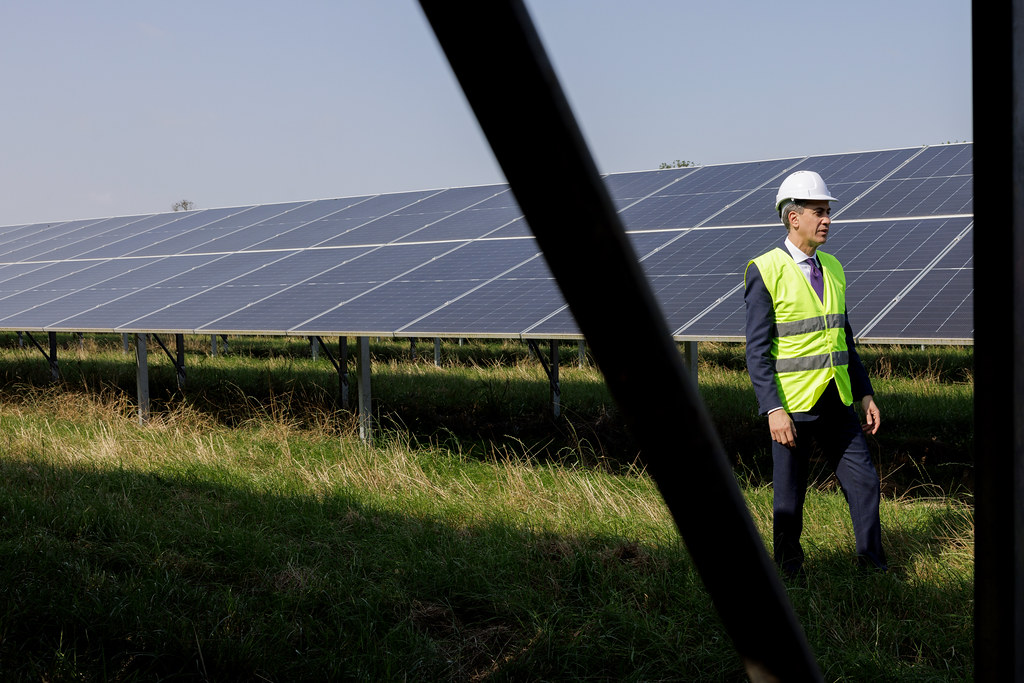MPs are set to debate the UK’s priorities for the COP29 climate conference in Westminster Hall tomorrow (10 September).
While the full list of UK government officials who will attend the conference has not yet been finalised, minister for climate Kerry McCarthy confirmed in the House of Commons in July that both she and the UK secretary of state for energy security and net zero Ed Miliband will be in attendance.
The UK has not yet officially outlined its priorities for the conference. Still, ahead of tomorrow’s debate on the subject, a debate briefing document highlights potential focuses for the UK at COP29.
The COP29 climate conference will take place in Baku, Azerbaijan, from 11 to 22 November 2024. The nomination of Azerbaijan as host for the climate conference has drawn significant controversy, as the nation has been open about its plans to increase gas production over the next decade, with the appointment of Mukhtar Babayev, a former executive of a state-owned oil and gas company attracting further criticism.
A recent report from thinktank the British Foreign Policy Group argues that these controversies, as well as what it calls “the UK’s own climate backsliding”, are causing growing skepticism and prompting “activists to question the legitimacy and future of the COP structure”.
COP29: The finance COP
Internationally, many have labelled COP29 as “the finance COP”, with the need for better green finance solutions likely to be a dominant debate point at the conference.
Azerbaijan has set out its main discussion points for the conference as the host nation. As well as delivering “deep, rapid and sustained emission reductions now to keep temperatures under control and stay below 1.5 degrees Celsius, while leaving no one behind,” the nation also highlights the importance of a just transition, as well as the need for increased climate finance to help facilitate decarbonisation. On this, the United Nations Framework Convention on Climate Change (UNFCCC) has said that “governments must establish a new climate finance goal, reflecting the scale and urgency of the climate challenge”.
In response, Ed Miliband has confirmed that the Labour government will meet the £11.6 billion international climate finance by 2025/2026 pledge made by the previous Conservative government.
An updated New Collective Quantified Goal (NCQG)—the annual commitment for developed nations to provide climate finance to developing countries—is set to be agreed upon before the conference and is likely to be significantly higher than the current US$100 billion collective commitment. Each nation’s contribution to this commitment is likely to be a subject of much discussion at COP29, and the UK will be no exception. Ed Miliband recently discussed these targets in a meeting with current and past COP presidents, underlining “the UK’s determination to act as a global leader and reliable partner on climate action”.
Looking further to the future, each nation’s updated Nationally Determined Contribution (NDC)—emissions reduction commitments, required to be updated every five years—will be required to be submitted in the coming months ahead of next year’s COP30 in Brazil, so it is likely that setting ambitious climate goals will be a key focus for the UK government and a topic of discussion at the conference. On this, Ed Miliband recently wrote to the head of the Climate Change Committee (CCC), asking the body for its guidance in setting the next round of NDCs.
Stakeholder views
Across the UK, different stakeholders have differing views on how the UK should focus its attention at COP29. Simon McWhirter, deputy chief executive of the industry body, the UK Green Building Council, believes that this COP is a time for the UK to reaffirm its dedication to overall climate targets, noting: “Ramping up our climate ambitions on the international stage is both a welcome and necessary move.
“Over the last few years we’ve ceded our leadership position not just in terms of the political bravery on show; but our real-world delivery against our current climate targets. The new government has set out more progressive proposals around energy and climate, and ahead of COP29 can now seize this critical opportunity to set the bar for climate action.”
Meanwhile, comment from thinktank the Carbon Tracker Initiative argues that the UK must prioritise climate finance at COP29, adding that “a whole-of-government approach and a revised vision for financial regulators, including a new climate mandate for the Bank of England, are essential”.






